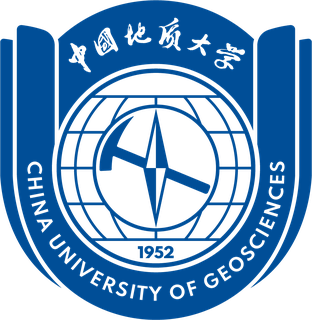
Economic geology is concerned with earth materials that can be used for economic and industrial purposes. These materials include precious and base metals, nonmetallic minerals and construction-grade stone. Economic geology is a subdiscipline of the geosciences; according to Lindgren (1933) it is “the application of geology”. It may be called the scientific study of the Earth's sources of mineral raw materials and the practical application of the acquired knowledge.

Mining in the engineering discipline is the extraction of minerals from underneath, open pit, above, or on the ground. Mining engineering is associated with many other disciplines, such as mineral processing, exploration, excavation, geology, and metallurgy, geotechnical engineering and surveying. A mining engineer may manage any phase of mining operations, from exploration and discovery of the mineral resources, through feasibility study, mine design, development of plans, production and operations to mine closure.[citation needed]

Prospecting is the first stage of the geological analysis of a territory. It is the search for minerals, fossils, precious metals, or mineral specimens. It is also known as fossicking.
Exploration geophysics is an applied branch of geophysics and economic geology, which uses physical methods at the surface of the Earth, such as seismic, gravitational, magnetic, electrical and electromagnetic, to measure the physical properties of the subsurface, along with the anomalies in those properties. It is most often used to detect or infer the presence and position of economically useful geological deposits, such as ore minerals; fossil fuels and other hydrocarbons; geothermal reservoirs; and groundwater reservoirs. It can also be used to detect the presence of unexploded ordnance.

Geoscience Australia is an agency of the Australian Government. It carries out geoscientific research. The agency is the government's technical adviser on all aspects of geoscience, and custodian of the geographic and geological data and knowledge of the nation.
The Jackson School of Geosciences at The University of Texas at Austin unites the Department of Geological Sciences with two research units, the Institute for Geophysics and the Bureau of Economic Geology.
The following outline is provided as an overview of and topical guide to geology:
Xie Xuejin was a Chinese geochemist who won the AAG Gold Medal in 2007. Xie was considered as the Father of Geochemical Mapping in China.

A geologist is a scientist who studies the solid, liquid, and gaseous matter that constitutes Earth and other terrestrial planets, as well as the processes that shape them. Geologists usually study geology, earth science, or geophysics, although backgrounds in physics, chemistry, biology, and other sciences are also useful. Field research is an important component of geology, although many subdisciplines incorporate laboratory and digitalized work. Geologists can be classified in a larger group of scientists, called geoscientists.

The European Association of Geoscientists and Engineers (EAGE) is a professional organization for geoscientists and engineers, established in 1951 with a worldwide membership. The association provides a platform for professionals in geophysics, petroleum exploration, geology, reservoir engineering, mining, civil engineering, digitalization and energy transition to exchange ideas and information. EAGE operates two divisions: the Oil & Gas Geoscience Division and the Near Surface Geoscience Division.
Geosoft Incorporated is a software development and services company headquartered in Toronto, Canada. The company provides geophysical and geological software and geospatial server technology for professional geoscientists involved in natural resource exploration and related earth science disciplines.

John Call Cook was an American geophysicist who played a crucial role in establishing the field of ground-penetrating radar and is generally regarded as contributing the fundamental research to develop the field. Cook is also known for demonstrating that aerial surveys can map surface radioactivity to enable much more efficient prospecting for uranium ore, for inventing electrostatic detection of hazardous ice crevasses, and for developing other novel techniques in remote sensing.

Sergo OrdzhonikidzeRussian State University for Geological Prospecting, or the Russian State University for Geological Prospecting is named after Sergo Ordzhonikidze and previously known as the Moscow Geological Prospecting Institute, is a public university based in Moscow, Russia, specialising in geology, geophysics, gemmology, ecology and other earth-science disciplines.
The Chinese Academy of Geological Sciences is an institution that engages in geoscience research in the People's Republic of China. The academy was established in 1956 and reorganized in 1999. Administratively it is under the PRC Ministry of Land and Resources.

Janne Blichert-Toft is a geochemist, specializing in the use of isotopes with applications in understanding planetary mantle-crust evolution, as well as the chemical composition of matter in the universe. To further this research, Blichert-Toft has developed techniques for high-precision Isotope-ratio mass spectrometry measurements.

The China University of Geosciences (Beijing) is a public university located in Beijing, China. It is affiliated with the Ministry of Education, and co-funded by the Ministry of Education and the Ministry of Natural Resources. The university is part of the Double First-Class Construction and Project 211.
The Geological Survey and Mineral Exploration of Iran or in brief GSI is a government agency responsible for conducting geological and mineral surveys throughout the country, collecting the results of activities carried out in this field, establishing coordination, preparing and publishing geological maps of Iran. It is a subdivision of the Ministry of Industry, Mine and Trade, which was established in 1962 in cooperation with United Nations.

Geological engineering is a discipline of engineering concerned with the application of geological science and engineering principles to fields, such as civil engineering, mining, environmental engineering, and forestry, among others. The work of geological engineers often directs or supports the work of other engineering disciplines such as assessing the suitability of locations for civil engineering, environmental engineering, mining operations, and oil and gas projects by conducting geological, geoenvironmental, geophysical, and geotechnical studies. They are involved with impact studies for facilities and operations that affect surface and subsurface environments. The engineering design input and other recommendations made by geological engineers on these projects will often have a large impact on construction and operations. Geological engineers plan, design, and implement geotechnical, geological, geophysical, hydrogeological, and environmental data acquisition. This ranges from manual ground-based methods to deep drilling, to geochemical sampling, to advanced geophysical techniques and satellite surveying. Geological engineers are also concerned with the analysis of past and future ground behaviour, mapping at all scales, and ground characterization programs for specific engineering requirements. These analyses lead geological engineers to make recommendations and prepare reports which could have major effects on the foundations of construction, mining, and civil engineering projects. Some examples of projects include rock excavation, building foundation consolidation, pressure grouting, hydraulic channel erosion control, slope and fill stabilization, landslide risk assessment, groundwater monitoring, and assessment and remediation of contamination. In addition, geological engineers are included on design teams that develop solutions to surface hazards, groundwater remediation, underground and surface excavation projects, and resource management. Like mining engineers, geological engineers also conduct resource exploration campaigns, mine evaluation and feasibility assessments, and contribute to the ongoing efficiency, sustainability, and safety of active mining projects











